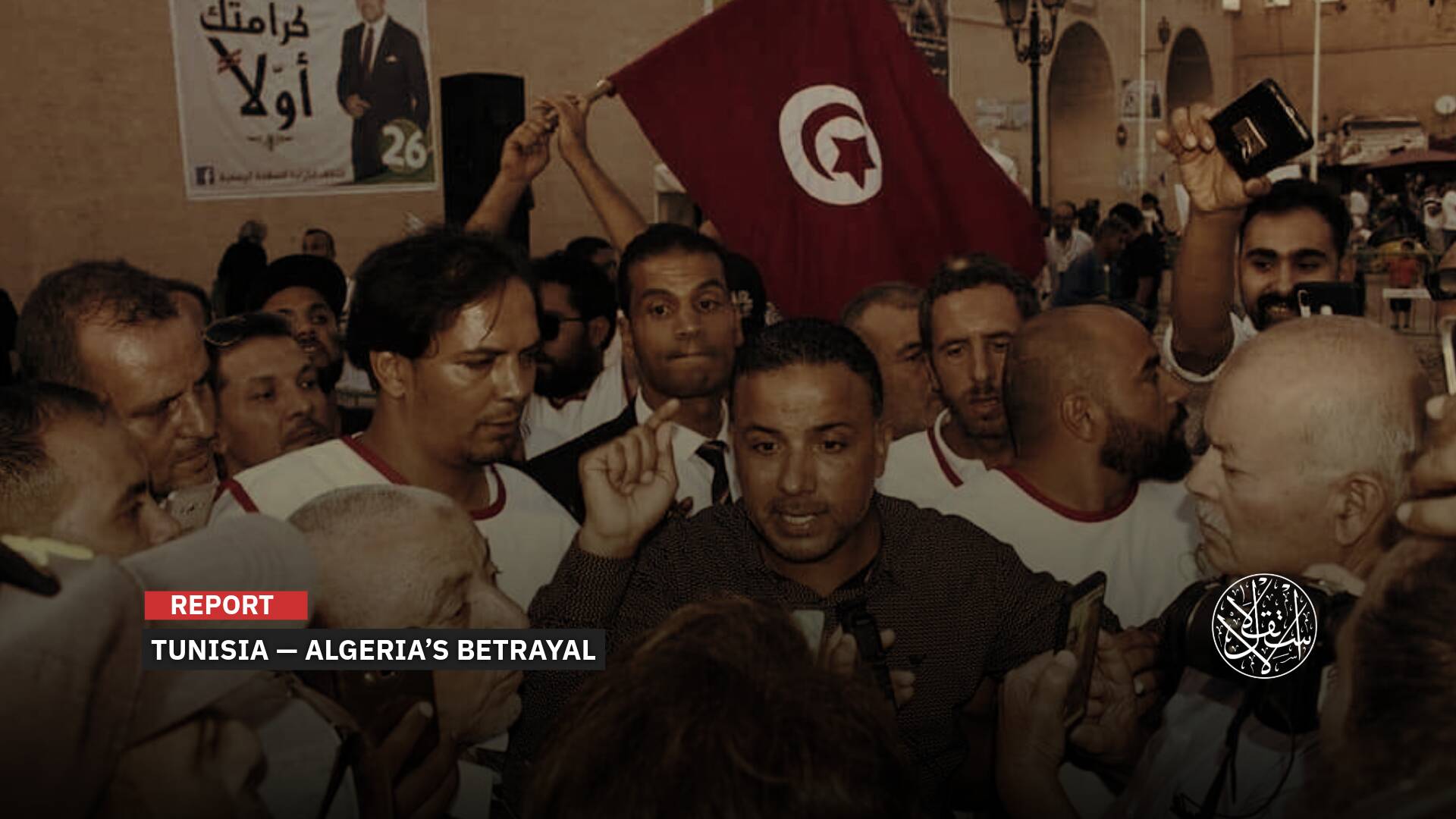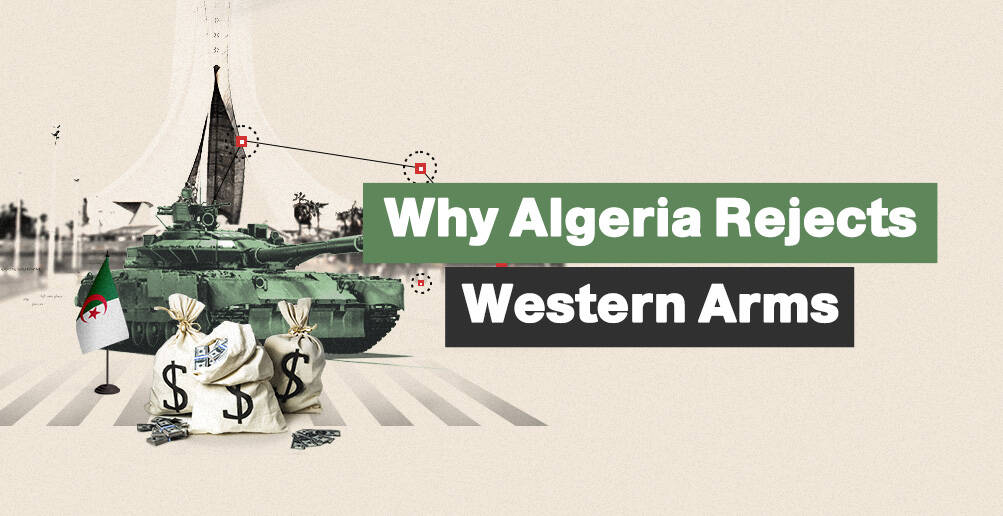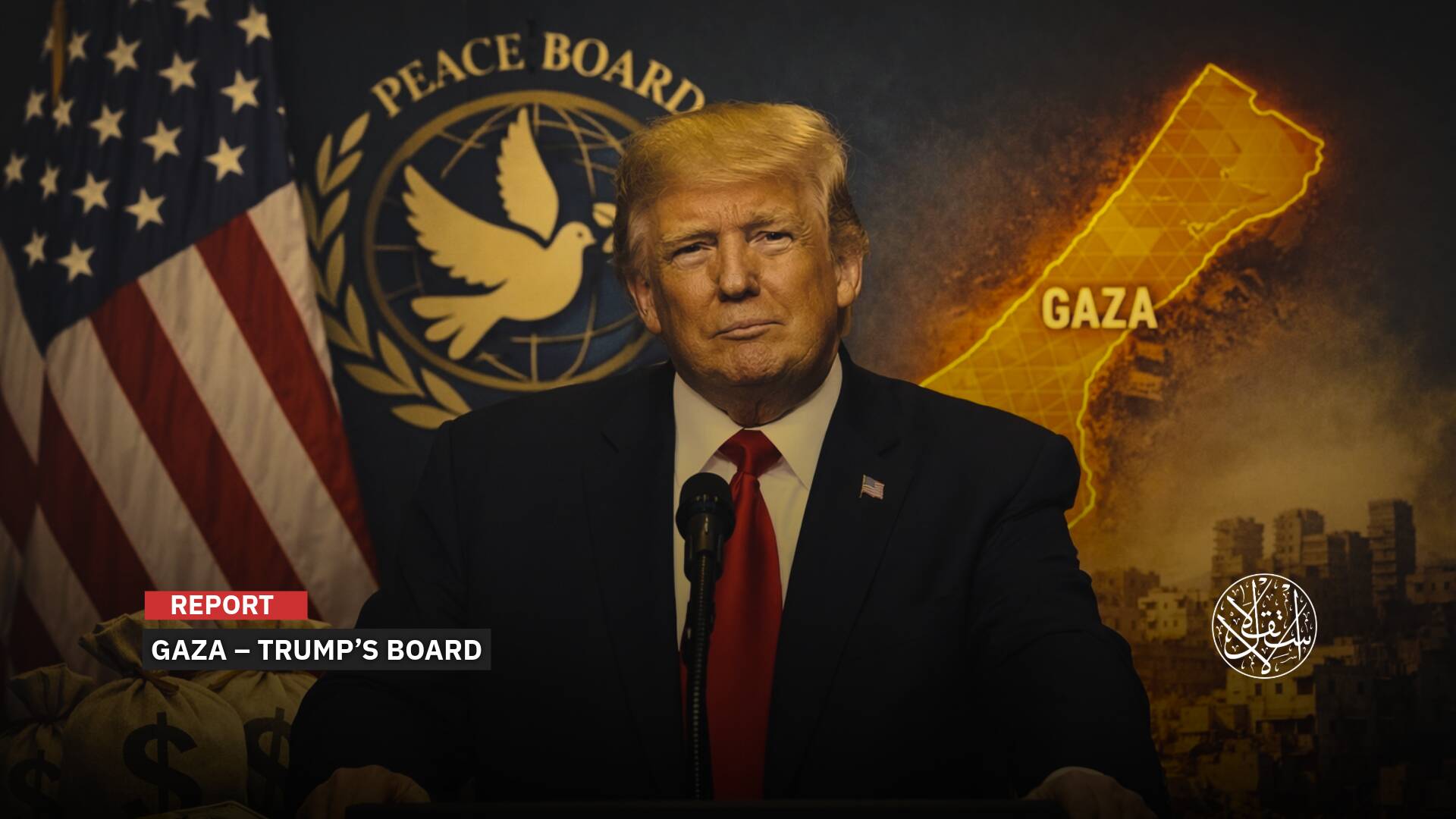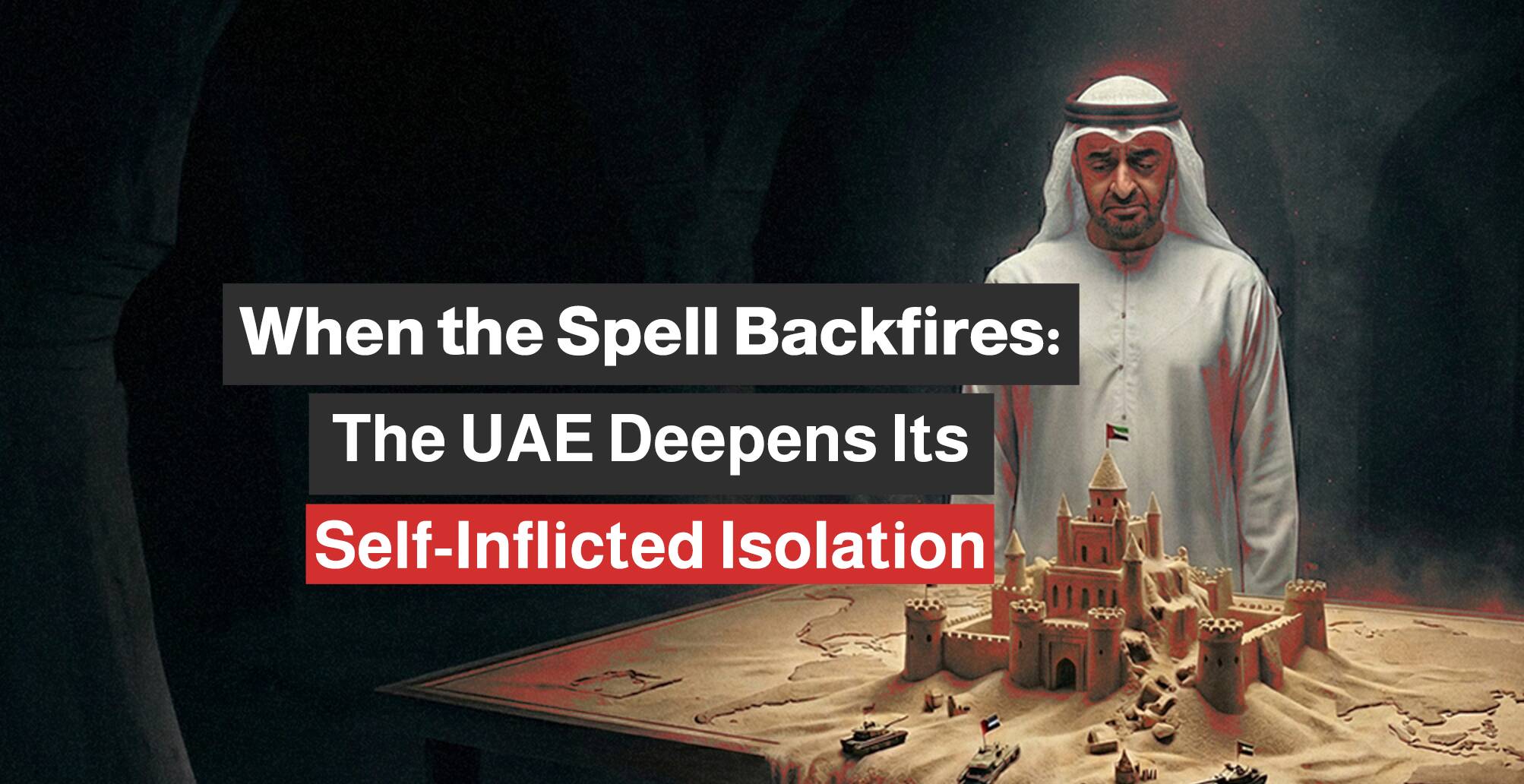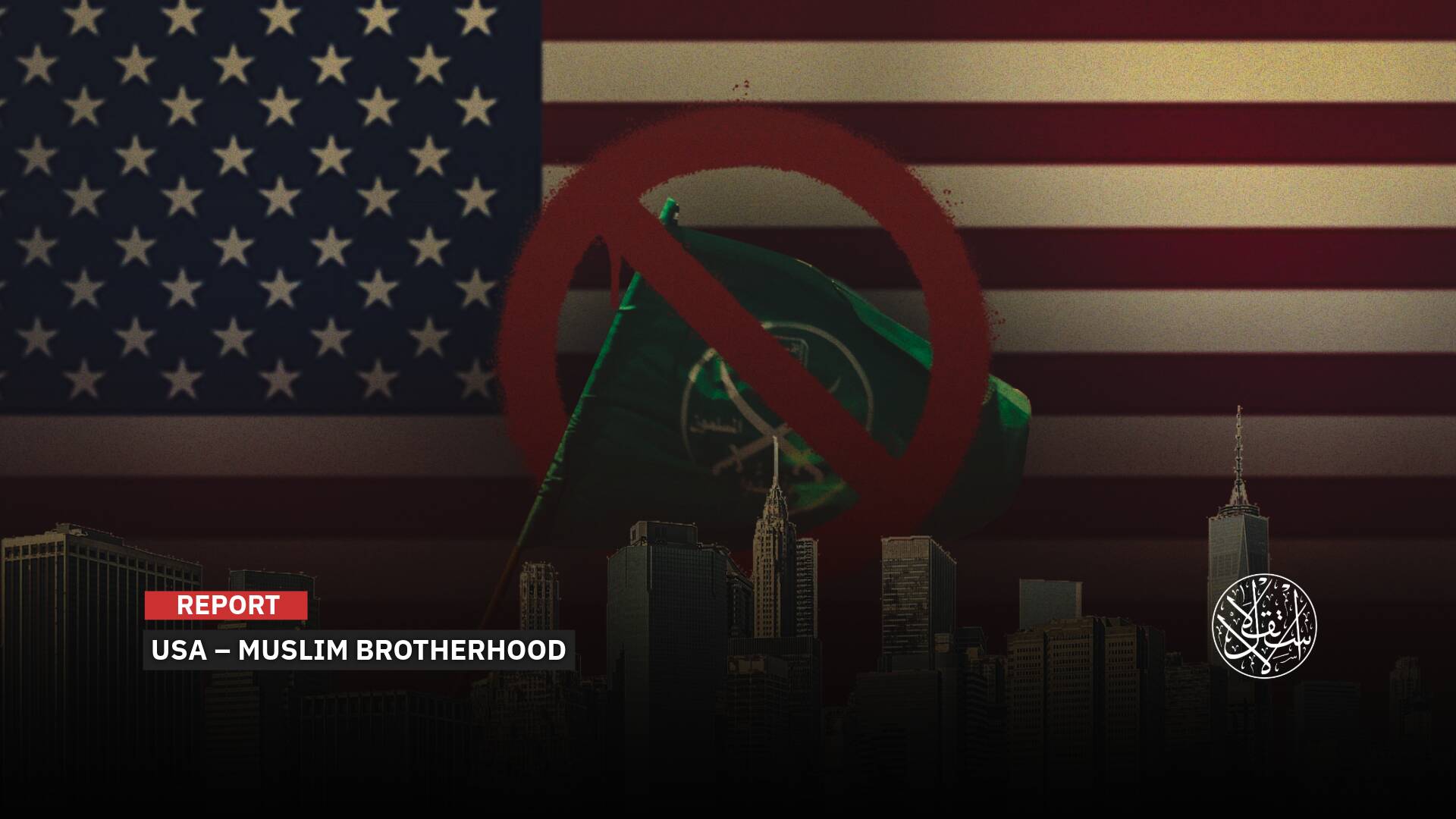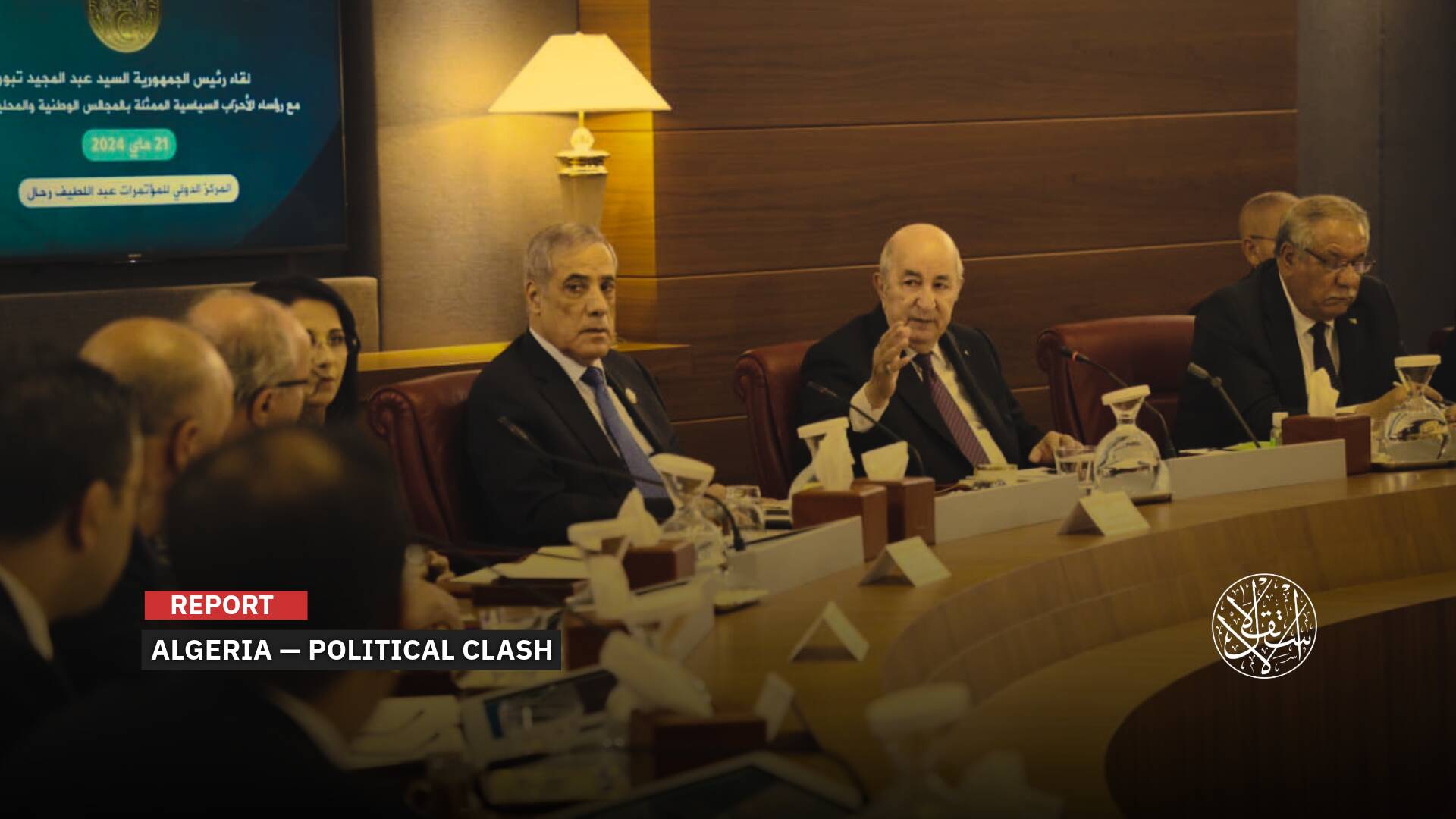Why the U.S. Is Angry Over Larijani’s Visit to Iraq
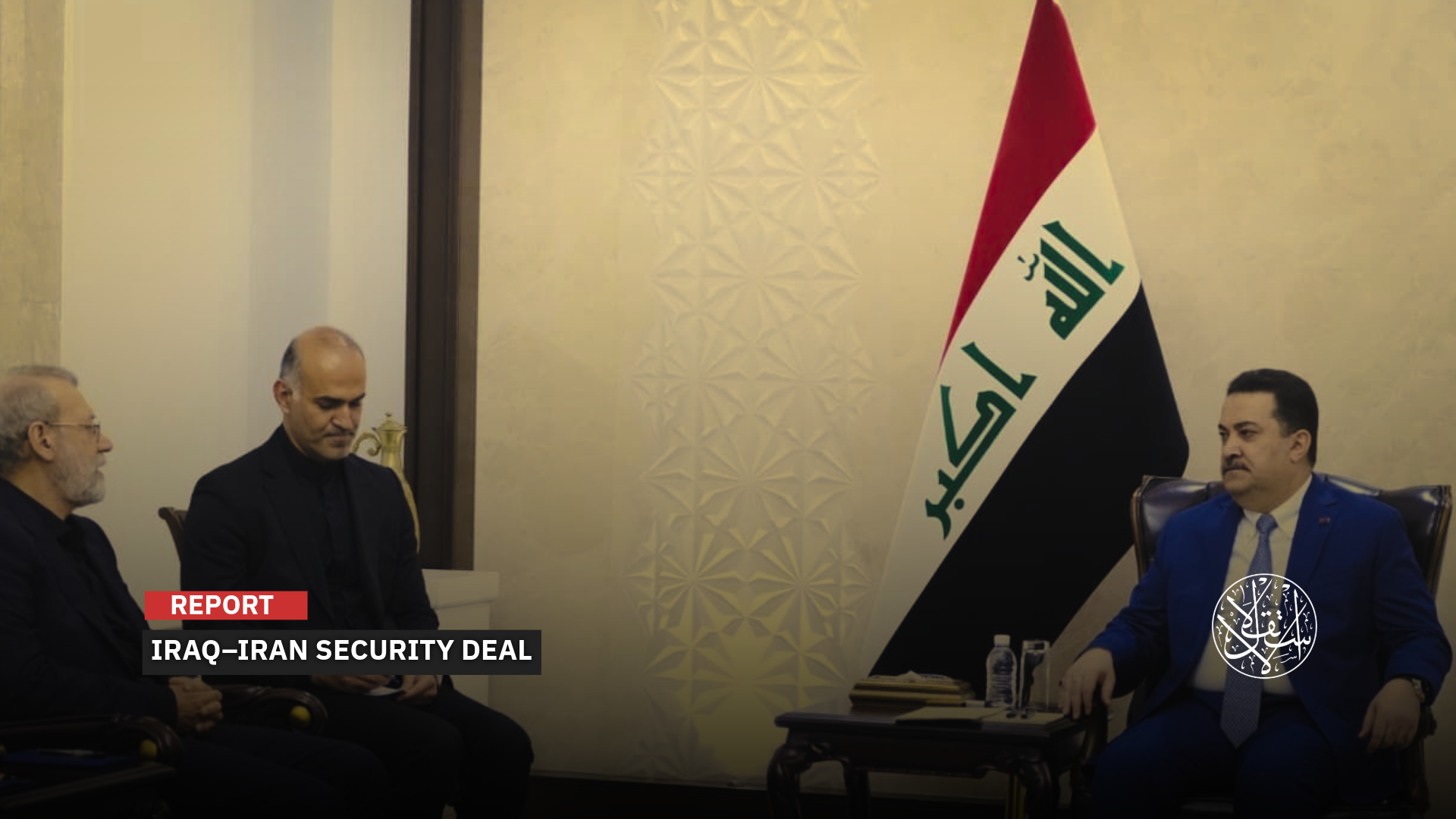
Iran’s security chief said the U.S. is pressuring Iraq to dissolve the Popular Mobilization Forces.marco
Days after Iranian officials rejected calls to dissolve the Popular Mobilization Forces, the secretary of Iran’s Supreme National Security Council, Ali Larijani, arrived in Baghdad on August 11, 2025, for a three-day visit to sign a joint security memorandum.
Some analysts saw Larijani’s visit as a political embarrassment for the Iraqi government, similar to the earlier visit by Esmail Qaani, commander of Iran’s Quds Force, whose presence in Baghdad ahead of the Arab League summit on May 17, 2025, was widely seen as reducing Arab, especially Gulf, representation.
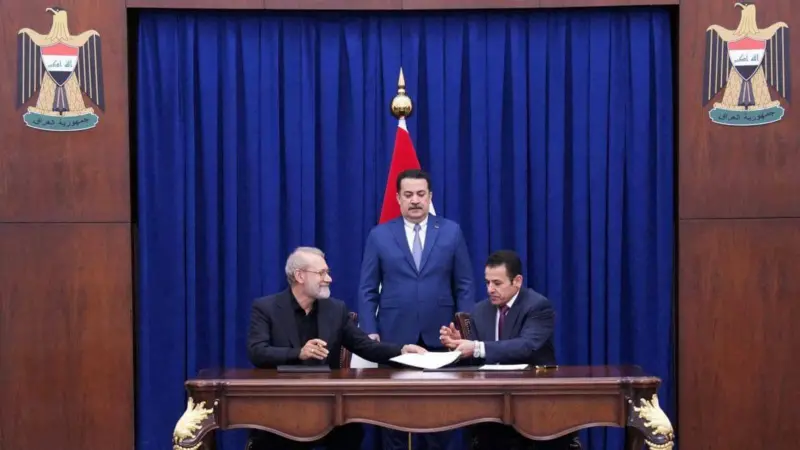
Memorandum of Understanding
During his visit, Ali Larijani signed a security memorandum of understanding with his Iraqi counterpart, Qasim al-Araji, focused on border coordination between the two countries. He also held separate meetings with Iraq’s president, prime minister and parliamentary speaker.
“A security memorandum of understanding was signed with Iraq, the aim of which is to prevent others from undermining the security of both countries,” said Larijani, stressing at the same time that “his country is concerned about the security of the entire region.”
In reference to U.S. pressure on Baghdad to dissolve the Popular Mobilization Forces, Larijani said, “The Iraqi people are brave and do not need to be imposed on.” He added that his talks in Baghdad also covered broader regional issues.
The visit came only three days after Ali Akbar Velayati, senior adviser to Supreme Leader Ali Khamenei, publicly rejected what he called a U.S. plan to dismantle and disarm the Popular Mobilization Forces, in a phone call with the head of the State of Law Coalition, Nouri al-Maliki, according to IRNA.
Iraq’s National Security Advisory Office issued a statement on August 13 clarifying that the memorandum was not a binding security agreement. Al-Araji explained that Iraq already had a security record with Iran, signed on March 19, 2023, covering border security and measures to neutralize Iranian Kurdish opposition groups based in the Kurdistan region.
The statement said the new memorandum builds on the March 2023 accord signed by Ali Shamkhani and al-Araji, which bound Iraq to stop Iranian Kurdish groups from using its territory for attacks.
Those groups include the Kurdistan Toilers’ Party, the Organization of Iranian Kurdistan Struggle, and Kurdistan Free Life Party, better known as PJAK. The most prominent, however, are the Democratic Party of Iranian Kurdistan, known as PDKI, and Komala Party of Iranian Kurdistan .
According to the statement, the memorandum had been reviewed by the Iraqi cabinet and approved well before Larijani’s appointment on August 5 as Shamkhani’s successor, and was signed during his visit to Baghdad under the supervision of Prime Minister Mohammed Shia’ al-Sudani.
The National Security Advisory Office emphasized that the memorandum had been prepared before “Israel’s” aggression against Iran between June 13 and 24, 2025, and that it was signed during Larijani’s visit. It stressed there is no formal security treaty between Iraq and Iran, only a memorandum of understanding, and urged media outlets to rely on official sources when reporting.
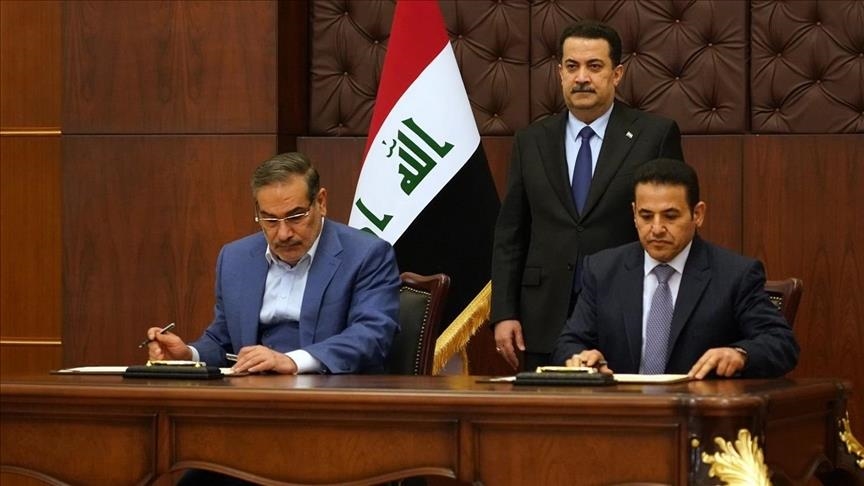
Embarrassing Baghdad
The timing of Larijani’s visit, which came amid U.S. pressure on Iraq to dissolve the Popular Mobilization Forces, embarrassed the Iraqi government, according to Iraqi affairs researcher Latif al-Mahdawi.
“Iran knows precisely when and where to act. By sending Larijani, it aimed to signal both at home and abroad that it still wields influence in Iraq, but the visit left Baghdad facing friction with Washington,” he told Al-Estiklal.
“This was evident in U.S. officials’ statements and actions rejecting the agreement signed between Iran and Iraq.”
“Because of his official standing and his closeness to Iran’s supreme leader, Larijani’s arrival in Baghdad put Iraq in a difficult position. Had it been another figure, Washington would not have reacted as sharply to the memorandum, which had already been signed by his predecessor Ali Shamkhani on March 19, 2023,” the researcher said.
“Iran routinely seeks to embarrass Baghdad whenever the Iraqi government pursues policies at odds with Tehran. This was the case during the Arab summit held in Baghdad three months ago, when Iran suddenly sent Esmail Qaani, who was received publicly by al-Araji and splashed across the media, even though all his visits are usually kept quiet.”
According to al-Mahdawi, “Iran wanted to disrupt the Arab summit, especially after Iraqi Prime Minister Mohammed Shia’ al-Sudani’s adviser Fadi al-Shammari said Saudi Arabia had confirmed the attendance of Crown Prince Mohammed bin Salman along with many others.”
“In the end,” he added, “all but the leaders of Egypt, Qatar, Somalia, Palestine, and Yemen stayed away.”
Iraq’s Shafaq News reported on August 11 that Larijani’s visit aimed to rally the so-called “axis of resistance” and reorganize its ranks, alongside Iraq’s political role in calming regional tensions in the coming period.
The agency added that Larijani’s new role requires reshaping the leadership of the axis, which has weakened in recent months, and reassigning responsibilities after the planned U.S. troop withdrawal from Iraq at the end of September.
According to Shafaq News, Larijani also discussed with Iraqi officials the need to quickly form a new government after the parliamentary elections scheduled for November 11, 2025, in order to achieve stability both at home and across the region. The report stressed that balancing Iraq’s political process is crucial under current international conditions.
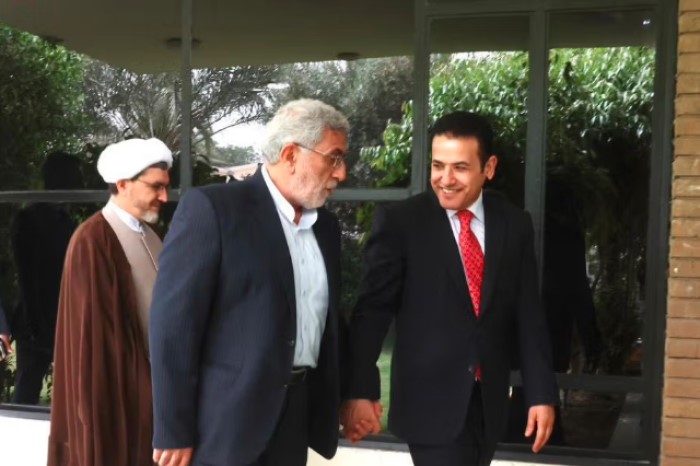
U.S. Rejection
In the first reaction from Washington to the security memorandum signed between Baghdad and Tehran, the State Department announced its opposition to any legislation that runs counter to U.S. objectives and undermines efforts to strengthen Iraq’s existing security institutions.
Asked whether Washington was concerned about the agreement, particularly given its previous reservations over the Popular Mobilization Forces law, State Department spokesperson Tammy Bruce said, “We support genuine Iraqi sovereignty, not legislation that would turn Iraq into an Iranian satellite state.”
Speaking at a press briefing on August 12, Bruce added, “And so, I think we have – we’ve been clear, in this particular instance certainly and others, that the future of nations should be in the hands of the people of those nations.”
“And certainly our commitment here, as we’ve made clear, this particular dynamic runs counter to what our commitment has been regarding security in general.”
For about a month, Washington’s calls for dissolving the Popular Mobilization Forces have shifted from private messages to public statements. The change became evident when U.S. Secretary of State Marco Rubio conveyed to Iraqi Prime Minister Mohammed al-Sudani his government’s concerns over a draft law still under discussion in parliament.
In an official statement on July 22, Rubio stressed that any such legislation would institutionalize Iranian influence and armed terrorist groups undermining Iraq’s sovereignty.
The draft law represents an amendment to the Popular Mobilization Authority Law No. 40 of 2016. It seeks to integrate the militia into Iraq’s official military structure while granting it broad organizational and security powers.
Under the proposal, the Popular Mobilization Forces would be considered part of the regular armed forces and report directly to the commander-in-chief. Western governments reject the plan, arguing that it would cement Iranian influence and strengthen armed groups, thereby weakening Iraq’s sovereignty.
In response, Iraq’s embassy in Washington issued a statement on August 13, countering the State Department’s remarks. “Iraq is a fully sovereign state, with the inherent right to conclude agreements and memoranda of understanding in accordance with its Constitution, national laws, and supreme interests,” the statement said.
“The recently signed security agreement with the Islamic Republic of Iran falls within the framework of bilateral cooperation aimed at safeguarding security and managing the shared border, thereby contributing to the stability and security of both countries and serving the broader security of the region,” it added.
“Iraq maintains relations of friendship and cooperation with a wide range of countries, including its geographic neighbors, the United States of America, and other friendly nations, and is committed to fostering these relations on the basis of mutual respect and shared interests,” according to the statement.
The United States did not stop at the comments of State Department spokeswoman Tammy Bruce. On August 16, Steven Fagin, the chargé d’affaires at the U.S. embassy in Baghdad, met with Iraq’s national security adviser Qasim al-Araji to inquire about the memorandum he signed with his Iranian counterpart, Ali Larijani.
While the U.S. embassy in Baghdad issued no statement, al-Araji’s office confirmed the meeting, saying the two sides reviewed “the details of the security memorandum of understanding signed between Iraq and Iran regarding border control, in a way that supports security and stability in the region and prevents smuggling and infiltration.”
In an official statement, al-Araji stressed that Iraq bases its policies on its highest national interests and acts as an independent sovereign state, adding that the Iraqi government pursues balanced relations with regional and international partners and continues a policy of diplomatic openness toward friendly and brotherly nations.
According to the statement from the Iraqi National Security Advisory, Fagin reiterated U.S. support for the Iraqi government’s balanced approach in both its domestic and foreign relations.
Sources
- Iraq–Iran Security Agreement Worries Washington [Arabic]
- Araji’s Office on Larijani Visit: It Was a Memorandum, Not a Security Treaty [Arabic]
- Iraq-Iran Security Deal on the Table: Details of Araji’s Meeting With U.S. Acting Ambassador [Arabic]
- Sudani Surprise: Mohammed bin Salman to Attend Baghdad Summit [Arabic]
- Qaani’s Public Visit to Iraq: What Is the Quds Force Chief Seeking in Baghdad? [Arabic]
- Iraq Announces Signing of Joint Security Agreement with Iran [Arabic]
- New security deal with Iraq to secure regional stabilization, Iran says
- Larijani: The Iraqi people are brave and do not need impositions
- Larijani in Baghdad to Reorganize the “Axis of Resistance” and Form a New Government [Arabic]




